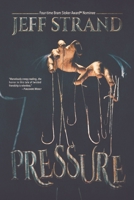You Might Also Enjoy
Book Overview
When Roger Huntington comes home from college for the summer and is met by his best friend, Tooth, he knows they're going to have a good time. A summer full of beer, comic books, movies, laughs, and maybe even girls. The sun is high and the sky is clear as Roger and Tooth set out to shoot beer cans at Bobcat Mountain. Just two friends catching up on lost time, two friends thinking about their futures . . . two friends suddenly thrust into the middle of a nightmare. Forced to fight for their lives against a sadistic killer with an arsenal of razor sharp blades and a hungry dog by his side. If they are to survive, they must decide: are heroes born, or are they made? Or is something more powerful happening to them? And more importantly, how do you survive when all roads lead to death?
"A tense, bloody ride!" - Brian Keene, author of The Rising
"If you want to freak yourself out on your next camping trip, you can't really do any better than The Summer I Died." - BloodyDisgusting.com











































